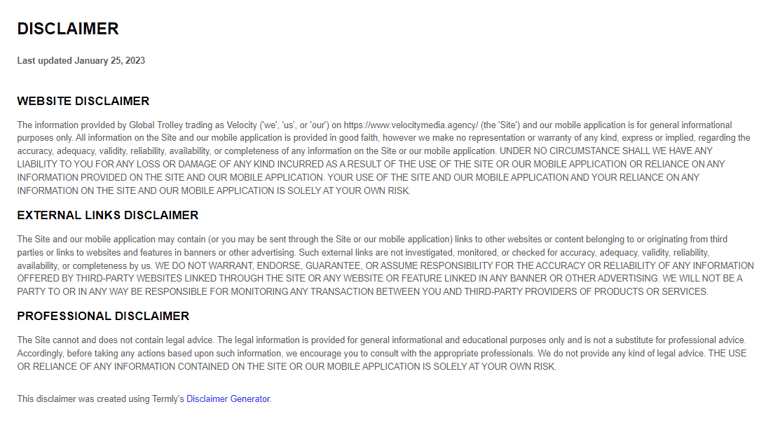Services List
There is a thin line that marketers tread on when utilising databases in their marketing efforts. Above and beyond the ethical use of data, marketers often turn a blind eye to the legal aspect of things. This alone has the ability to shatter a potential lead's trust in a product, brand or service from the get-go. In this article, we unpack the ins and outs of data privacy at the hand of various government legislations and why it is important to stick to the rules and respect your audience's privacy.

Covered in this article
Data Privacy & Ethics
Developing customer relationships through data
The Future of Marketing Data Analytics
Data Compliance & Legislation
Data Privacy & Ethics
The arsenal of analytic tools that digital marketers can use in their business SEO and marketing campaigns is highly dependent on big data that is collected from consumers. Businesses that do not respect the privacy of their customers will tend to lose the latter’s trust which is an important component of their business success.
While gathering big data for business analytics purposes can provide a wealth of information about customer behaviour and preferences for instance, when done without respecting the privacy of the consumers, the long-term success sought to be achieved by big data analytics will no longer become viable when customers lose trust and confidence in them.
Users should be able to access free, ad-supported content in full faith that their online privacy will be respected.
To balance data-driven marketing and privacy, digital marketers everywhere need to:
- Collect data responsibly
- Be resourceful with how you reach audiences, and
- Hire and train for privacy.
Read more about Data Privacy & Ethics
Developing customer relationships through data
Fitting in with the abovementioned section about data privacy and ethics, responsible data usage can reward organisations with stronger relationships with their customers.
If there is customer confidence around the security of their personal information and reassurance that the marketing is relevant and useful, then data can be the foundation to any long-term connection. Marketers are under pressure to produce more personalised messages through different channels.
However, with the power of data comes responsibility, and consumers only want relationships with brands they trust.
There are several ways to measure marketing effectiveness while building customer relations that works for both small and large businesses. For optimal results, consider these four key steps:
1. Set Business Objectives With the Customer In Mind
Set your business objectives and get everyone in the organisation involved with the campaign efforts. Common objectives include increasing brand awareness in a certain location, gaining more leads or increasing product sales. Put yourself in the customer's shoes and construct buyer's journeys that are not intrusive.
2. Goals and Targets
Come up with targets for each objective. The goals should be SMART - specific, measurable, achievable, realistic, and time-bound. Take into consideration all the activities, products, or services that are presented on your website when setting the goals.
3. Target the Right Audience
Determine the market segments you want to focus on during your campaigns. The segments can either be people or organisations you think can create quality engagements. You can use Facebook Insights or Google Analytics data to give you information on the best-performing segments of your social media audience. You can then utilise such data to streamline your campaigns to cater to their needs. If your targeting is off-kilter then not only will you be wasting marketing budget but you will also create the wrong perception of your brand with that particular audience.
4. Do Everything By The Book
Later in this article, we will unpack the various laws and regulations in place to protect consumers' privacy. By complying to the law, marketers will not run the risk of breaking relationships with their customers.
Read more about Developing Customer Relationships Through Data
The Future of Marketing Data Analytics
Embracing marketing data analytics will give your company a competitive advantage and set up your marketing strategies for the future. Below we take a quick look at what the future holds for marketing data analytics and how organisations can best prepare for the next step in digital marketing.
Adopting Marketing Automation
In a nutshell, marketing automation refers to software platforms and technologies designed for marketing departments and organisations to more effectively market on multiple channels online and automate repetitive tasks. This can be accomplished through automation software such as HubSpot or ActiveCampaign where a workflow can be created to automate marketing communication when certain events transpire. This could include a form being filled in, time elapsing or when a marketing contact visits a specific web page, etc.
The Cookie Is Crumbling
As with any major shift involving privacy, data, and advertising, business experts and publications have been frantically buzzing about Google's plans to phase out third-party cookies and ad tracking.
This alone will have an immense effect on marketing across the entire digital landscape. But as we know, marketing is always evolving. As one method seems to become saturated, a new one is set to take its place. While the elimination of third-party cookies on Chrome will be inconvenient to some, marketers are also concerned about Google's reasoning behind the phase-out.
Read more about The Future of Marketing Data Analytics

Data Compliance & Legislation
Personal data is the gold of the Information Age. Person-specific private information such as identity numbers, addresses, banking details and more enable us to transact and function in the modern world. This makes these details especially valuable to criminals.
POPIA
POPIA is essentially SA’s new data protection law. After several years of phased implementation, the Protection of Personal Information Act 2013 (‘POPIA’) finally came into full effect on 1 July 2020 - with a one-year compliance period which ended on 1 July 2021. POPIA joins a collection of similar legislations around the world.
OBJECTIVES OF POPIA
- The responsible party must ensure that the conditions for the lawful processing of personal information are complied with at the time of determining the purpose and means of the processing, and during the processing itself.
- Personal information must be processed lawfully and in a reasonable manner, and only if it is adequate, relevant and not excessive given the purpose for which it is processed.
- Personal information must be collected for a specific, explicitly defined and lawful purpose related to a function or activity of the responsible party, and should not be retained for longer than is necessary to achieve that purpose.
- Further processing of personal information should be compatible with the purpose for which it was collected.
- The responsible party is required to take steps to ensure that the personal information is complete, accurate, not misleading and updated where necessary.
- The responsible party is required to take reasonably practicable steps to ensure that the data subject is aware of, amongst other things, what personal information is being collected, the source of the information, the purpose for which it is being collected, and the name and address of the responsible party.
- The responsible party is required to secure the integrity and confidentiality of personal information in its possession or under its control by taking appropriate, reasonable technical and organisational measures, having regard to generally accepted information security practices and procedures.
- A data subject has a right to request a responsible party to confirm whether personal information is held about the data subject, and be provided with the record or a description of the information held. A data subject may further request a responsible party to correct or delete personal information about the data subject that is inaccurate, irrelevant, excessive, out of date, incomplete, misleading or obtained unlawfully.
PAIA
The Promotion of Access to Information Act 2 of 2000 (PAIA) is South Africa’s access to information law and it enables people to gain access to information held by both public and private bodies.
OBJECTIVES OF PAIA
- To promote transparency, accountability and effective governance of all public and private bodies
- To assist members of the public to effectively scrutinise and participate in decision-making by public bodies
- To ensure that the state promotes a human rights culture and social justice
- To encourage openness
- To establish voluntary and mandatory mechanisms or procedures which give effect to the right of access to information in a speedy, inexpensive and effortless manner
GDPR
Similar to POPIA, the General Data Protection Regulation (GDPR), which came into effect on 25 May 2018 in Europe, provides a legal framework for keeping EU citizens' personal data secure by requiring companies to have robust processes in place for handling and storing personal information.
- enforce fair and lawful processing of information,
- purpose limitation on personal data usage,
- and ensure data minimisation and data retention.
International Regulations
With many countries are passing legislation surrounding data privacy, the burden of compliance on business to meet consumer data privacy protection requirements is sure to increase.
Non-compliance can be expensive - penalties, fines and making the wrong business decisions can negatively impact your business, your finances and even your reputation in the market. Data quality and ethical stewardship can help you build trust and be a key differentiator when it comes to building customer relationships.
Always seek professional legal advice when dealing with such a variety of laws and regulations.
Read more about Data Compliance & Legislation





